Baking Soda Hard Water Removal: Are you tired of battling stubborn hard water stains in your home? I know I was! Those unsightly white deposits on your faucets, showerheads, and even your precious plants can be incredibly frustrating. But what if I told you the solution was likely already sitting in your pantry?
For generations, baking soda has been a household staple, not just for baking delicious treats, but also for its incredible cleaning power. Its history stretches back centuries, with evidence of its use found in ancient Egyptian cleaning rituals. While they might not have understood the chemistry behind it, they recognized its effectiveness. Today, we know that baking soda’s mild alkalinity helps to neutralize acids and dissolve grime, making it a fantastic natural cleaner.
Hard water, rich in minerals like calcium and magnesium, leaves behind those chalky residues that are so difficult to remove. Many commercial cleaners are harsh and expensive, but with this simple baking soda hard water removal trick, you can tackle those stains effectively and affordably. I’m going to show you how to use this everyday ingredient to restore shine to your fixtures, revive your plants, and say goodbye to those pesky hard water marks. Let’s get started!
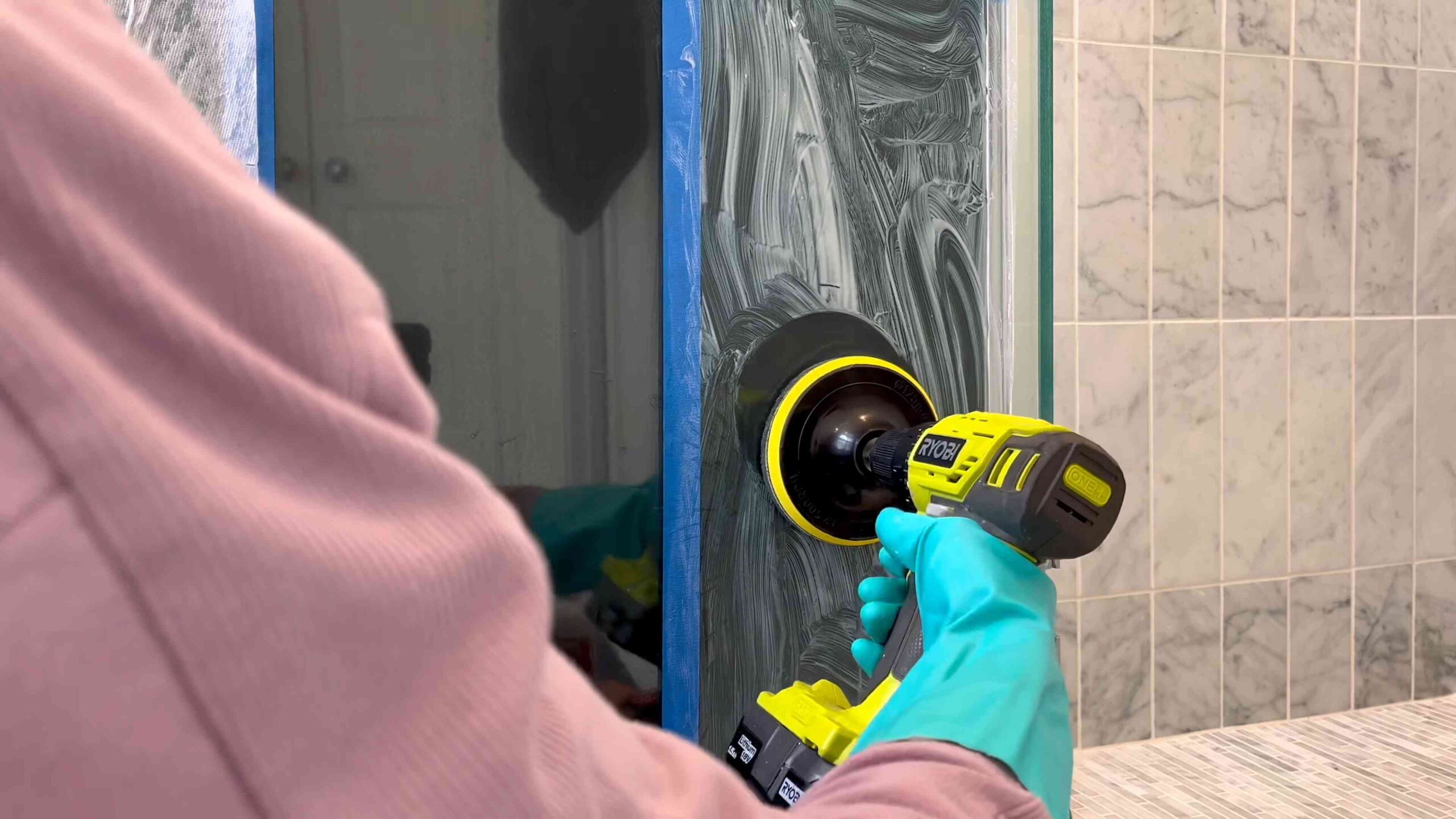
DIY Hard Water Stain Removal with Baking Soda: A Sparkling Solution!
Hey everyone! Hard water stains are the bane of my existence. They seem to pop up everywhere – on my shower doors, faucets, sinks, and even inside my toilet bowl. Those unsightly white, chalky deposits are not only annoying to look at, but they can also build up over time and damage your fixtures. But don’t despair! I’ve discovered a super effective and budget-friendly solution: baking soda! This humble kitchen staple is a powerhouse when it comes to tackling hard water stains. I’m going to walk you through my favorite methods for using baking soda to get your home sparkling again.
What You’ll Need
Before we dive in, let’s gather our supplies. The beauty of this DIY is that you probably already have most of these items on hand!
* Baking Soda
* White Vinegar (optional, but highly recommended for stubborn stains)
* Water
* Spray Bottle (optional, for vinegar solution)
* Cleaning Cloths or Sponges (non-abrasive)
* Old Toothbrush (for tight spots and grout)
* Rubber Gloves (to protect your hands)
* Paper Towels
* Lemon Juice (optional, for extra cleaning power and a fresh scent)
* Protective Eyewear (optional, but recommended when working with vinegar)
General Baking Soda Paste Method
This is my go-to method for most hard water stain situations. It’s simple, effective, and doesn’t require any fancy equipment.
1. Prepare the Baking Soda Paste: In a small bowl, mix baking soda with a little water to form a thick paste. The consistency should be similar to toothpaste. I usually start with about 1/4 cup of baking soda and add water a teaspoon at a time until I get the right consistency.
2. Apply the Paste: Using a cleaning cloth, sponge, or your fingers (with gloves on!), apply the baking soda paste generously to the affected areas. Make sure to cover all the hard water stains completely.
3. Let it Sit: This is the key! Allow the baking soda paste to sit on the stains for at least 30 minutes. For really tough stains, I sometimes let it sit for a few hours, or even overnight. The longer it sits, the more time it has to break down the mineral deposits.
4. Scrub Gently: After the soaking time, use a damp cleaning cloth, sponge, or old toothbrush to gently scrub the area. Avoid using abrasive scrubbers, as they can scratch your fixtures. I find that circular motions work best.
5. Rinse Thoroughly: Rinse the area thoroughly with clean water to remove all traces of the baking soda paste.
6. Dry and Polish: Use a clean, dry cloth or paper towel to dry the area. This will help prevent new water spots from forming. For extra shine, you can polish the surface with a dry cloth.
Tackling Hard Water Stains on Faucets and Showerheads
Faucets and showerheads are notorious for accumulating hard water stains. Here’s how I tackle them:
1. Prepare the Baking Soda Paste: Same as the general method, mix baking soda and water to form a thick paste.
2. Apply the Paste: Apply the paste to the faucet or showerhead, focusing on the areas with the most visible stains.
3. Wrap with a Cloth (Optional): For stubborn stains, I like to soak a cleaning cloth in white vinegar and wrap it around the faucet or showerhead after applying the baking soda paste. This creates a powerful cleaning combination.
4. Let it Sit: Allow the paste (and vinegar-soaked cloth, if used) to sit for at least an hour, or even overnight.
5. Scrub with an Old Toothbrush: Use an old toothbrush to scrub the hard-to-reach areas around the base of the faucet or showerhead, and around any crevices.
6. Rinse and Dry: Rinse thoroughly with clean water and dry with a clean cloth.
Cleaning Hard Water Stains in the Toilet Bowl
Toilet bowl stains are never fun, but baking soda can make the job much easier.
1. Pour Baking Soda into the Bowl: Pour about 1 cup of baking soda directly into the toilet bowl.
2. Let it Sit: Allow the baking soda to sit in the bowl for at least an hour, or preferably overnight. This will give it time to loosen the stains.
3. Scrub with a Toilet Brush: Use a toilet brush to scrub the inside of the bowl, paying special attention to the areas with the most visible stains.
4. Flush: Flush the toilet to rinse away the baking soda and loosened stains.
5. Repeat if Necessary: For really stubborn stains, you may need to repeat the process.
Using Baking Soda and Vinegar for Extra Cleaning Power
When baking soda alone isn’t enough, I bring in the big guns: vinegar! The combination of baking soda and vinegar creates a fizzing action that helps to break down even the toughest hard water stains. Be careful when mixing these two, as it can create pressure in a closed container. Always use them in an open area.
1. Apply Baking Soda: Sprinkle baking soda directly onto the hard water stains.
2. Spray with Vinegar: Fill a spray bottle with white vinegar and spray it directly onto the baking soda. You’ll see it start to fizz!
3. Let it Fizz: Allow the mixture to fizz for a few minutes. This fizzing action helps to loosen the stains.
4. Scrub: Use a cleaning cloth, sponge, or old toothbrush to scrub the area.
5. Rinse and Dry: Rinse thoroughly with clean water and dry with a clean cloth.
Cleaning Shower Doors with Baking Soda
Shower doors are magnets for hard water stains. Here’s my method for getting them sparkling clean:
1. Make a Baking Soda Paste: Mix baking soda and water to form a thick paste.
2. Apply the Paste: Apply the paste to the shower door, covering all the stained areas.
3. Let it Sit: Allow the paste to sit for at least 30 minutes.
4. Scrub: Use a non-abrasive sponge or cleaning cloth to scrub the shower door.
5. Rinse: Rinse the shower door thoroughly with clean water.
6. Squeegee: Use a squeegee to remove excess water and prevent new water spots from forming.
7. Dry: Dry the shower door with a clean cloth.
Boosting the Cleaning Power with Lemon Juice
For an extra boost of cleaning power and a fresh, citrusy scent, I sometimes add lemon juice to my baking soda cleaning solutions.
1. Mix Baking Soda and Lemon Juice: Mix baking soda with lemon juice to form a paste. The acidity of the lemon juice helps to break down hard water stains.
2. Apply the Paste: Apply the paste to the affected areas.
3. Let it Sit: Allow the paste to sit for at least 30 minutes.
4. Scrub: Scrub the area with a cleaning cloth, sponge, or old toothbrush.
5. Rinse and Dry: Rinse thoroughly with clean water and dry with a clean cloth.
Preventing Future Hard Water Stains
Okay, so you’ve successfully removed the hard water stains. Now, let’s talk about prevention! Here are a few tips to help keep those pesky stains at bay:
* Wipe Down Surfaces Regularly: After each shower or use of the sink, wipe down the surfaces with a clean, dry cloth. This will prevent water from sitting and evaporating, leaving behind mineral deposits.
* Use a Squeegee: Keep a squeegee in your shower and use it to remove excess water from the shower doors and walls after each shower.
* Install a Water Softener: If you have extremely hard water, consider installing a water softener. This will remove the minerals that cause hard water stains.
* Clean Regularly: Make it a habit to clean your faucets, showerheads, sinks, and toilet bowl regularly with baking soda or another hard water stain remover.
* Ventilate Your Bathroom: Proper ventilation can help reduce moisture buildup, which can contribute to hard water stains. Run the exhaust fan during and after showers.
Important Considerations
* Test in an Inconspicuous Area: Before applying any cleaning solution to a large area, test it in a small, inconspicuous area first to make sure it doesn’t damage the surface.
* Wear Gloves: Protect your hands by wearing rubber gloves when cleaning with baking soda and vinegar.
* Avoid Abrasive Cleaners: Avoid using abrasive cleaners, as they can scratch your fixtures.
* Be Patient: Hard water stains can be stubborn, so be patient and persistent. You may need to repeat the cleaning process several times to
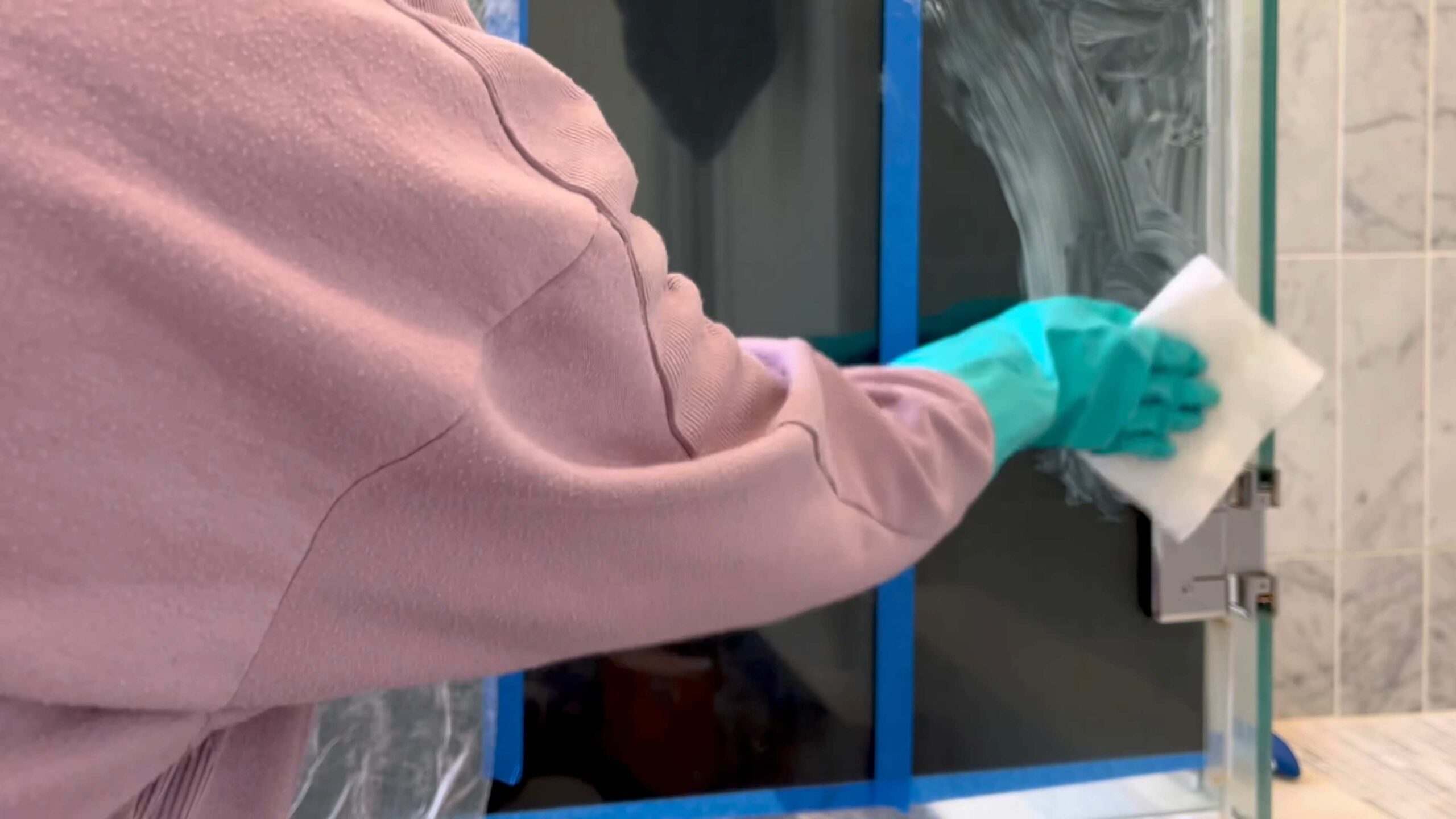
Conclusion
Tired of battling stubborn hard water stains and residue? This baking soda hard water removal trick is more than just a cleaning hack; it’s a game-changer for your home. We’ve explored how this simple, readily available ingredient can effectively tackle everything from grimy showerheads to cloudy glassware, all without the harsh chemicals found in many commercial cleaners. The beauty of this method lies in its simplicity, affordability, and eco-friendliness. You’re not just cleaning; you’re contributing to a healthier home environment.
But the benefits extend beyond just a sparkling clean. By using baking soda, you’re also protecting your plumbing and appliances from the damaging effects of hard water buildup. Scale and mineral deposits can significantly reduce the lifespan of your water heater, washing machine, and dishwasher. Regular use of this baking soda solution can help prevent these costly repairs and replacements.
Why is this DIY trick a must-try? Because it’s effective, safe, and incredibly versatile. It’s a powerful weapon against hard water stains on various surfaces, from stainless steel to porcelain. Plus, it’s a fantastic alternative for those with sensitivities to strong chemical odors or allergies.
Looking for variations? Consider adding a few drops of your favorite essential oil, like lemon or lavender, to the baking soda paste for a refreshing scent. For particularly stubborn stains, pre-soaking the affected area with white vinegar before applying the baking soda paste can significantly boost its cleaning power. Another variation is to create a baking soda and vinegar solution for drains clogged with hard water deposits. Just be sure to use caution and follow safety guidelines when mixing these two ingredients.
We’ve provided you with the knowledge and the tools; now it’s your turn to put this baking soda hard water removal method to the test. We’re confident that you’ll be amazed by the results. Don’t just take our word for it – experience the difference for yourself.
We encourage you to try this simple yet effective solution and share your experiences with us. Did it work wonders on your showerhead? Did it bring your glassware back to life? Let us know in the comments below! Your feedback will not only help us improve our recommendations but also inspire others to embrace this natural and cost-effective cleaning solution. Share your before-and-after photos, your favorite variations, and any tips you’ve discovered along the way. Together, we can conquer hard water stains and create cleaner, healthier homes. So, grab that box of baking soda and get ready to say goodbye to those unsightly hard water deposits!
Frequently Asked Questions (FAQ)
What exactly is hard water, and why is it a problem?
Hard water contains high levels of minerals, primarily calcium and magnesium. While not harmful to drink, these minerals can cause several problems around the house. They leave behind unsightly stains and residue on fixtures, appliances, and dishes. Hard water can also reduce the effectiveness of soaps and detergents, leading to dull hair and skin. Over time, mineral buildup can clog pipes and reduce the efficiency of water-using appliances, leading to increased energy bills and potential repairs.
How does baking soda work to remove hard water stains?
Baking soda, also known as sodium bicarbonate, is a mild alkali. It works by neutralizing acids and loosening mineral deposits. Its slightly abrasive texture also helps to scrub away stains without scratching surfaces. When used in conjunction with water or vinegar, baking soda creates a chemical reaction that helps to dissolve and lift away hard water buildup. It’s a gentle yet effective cleaning agent that’s safe for most surfaces.
What surfaces can I safely use baking soda to remove hard water stains?
Baking soda is generally safe for use on a wide range of surfaces, including:
* Stainless steel
* Porcelain
* Ceramic tile
* Glass
* Chrome
* Fiberglass
However, it’s always a good idea to test a small, inconspicuous area first, especially on delicate or painted surfaces. Avoid using baking soda on gold-plated fixtures or natural stone surfaces like marble or granite, as it can potentially scratch or damage them.
How do I make a baking soda paste for hard water stain removal?
To make a baking soda paste, simply mix baking soda with a small amount of water until you achieve a thick, spreadable consistency. The ratio is typically about 3 parts baking soda to 1 part water. You can also add a few drops of lemon juice or white vinegar for extra cleaning power. Apply the paste to the affected area, let it sit for a few minutes, and then scrub gently with a soft cloth or sponge. Rinse thoroughly with water and dry.
Can I use baking soda to clean my showerhead?
Yes, baking soda is an excellent way to clean a showerhead clogged with hard water deposits. There are two methods you can use:
1. **Paste Method:** Apply a thick baking soda paste to the showerhead, ensuring that it covers all the nozzles. Let it sit for at least 30 minutes, or even overnight for stubborn buildup. Then, scrub with a brush and rinse thoroughly with water.
2. **Soaking Method:** Remove the showerhead (if possible) and soak it in a solution of baking soda and water (about 1/4 cup baking soda per quart of water) for several hours or overnight. Rinse thoroughly and reattach the showerhead.
How often should I use baking soda to prevent hard water buildup?
The frequency of cleaning depends on the severity of your hard water and how often you use the affected fixtures. For areas prone to hard water stains, such as showers and faucets, aim to clean them with baking soda at least once a week. For appliances like dishwashers and washing machines, running an empty cycle with baking soda and vinegar every month can help prevent buildup. Regular maintenance will keep hard water stains at bay and prolong the life of your appliances.
Is it safe to mix baking soda with vinegar for hard water removal?
Yes, baking soda and vinegar can be mixed for cleaning purposes, but it’s important to do so with caution. The mixture creates a fizzing reaction that can help loosen dirt and grime. However, mixing large quantities of baking soda and vinegar in a closed container can create pressure and potentially cause an explosion. When using this mixture, always do so in a well-ventilated area and avoid using it on delicate surfaces. For drain cleaning, pour about 1/2 cup of baking soda down the drain, followed by 1 cup of vinegar. Let it fizz for 30 minutes, then flush with hot water.
Can I use baking soda to remove hard water stains from my toilet bowl?
Absolutely! Baking soda is a safe and effective way to clean your toilet bowl and remove hard water stains. Sprinkle about 1 cup of baking soda into the toilet bowl and let it sit for at least an hour, or even overnight. Then, scrub with a toilet brush and flush. For stubborn stains, you can add 1/2 cup of white vinegar to the baking soda and let it fizz before scrubbing.
What are some other natural alternatives to baking soda for hard water removal?
Besides baking soda, several other natural ingredients can help combat hard water stains:
* **White Vinegar:** A natural acid that dissolves mineral deposits.
* **Lemon Juice:** Similar to vinegar, lemon juice contains citric acid, which is effective at removing hard water stains.
* **Citric Acid:** A powdered form of citric acid that can be used to clean appliances and fixtures.
* **Borax:** A natural mineral that can be used as a cleaning agent and water softener.
Where can I buy baking soda?
Baking soda is readily available at most grocery stores, pharmacies, and discount retailers. It’s typically found in the baking aisle or the cleaning supplies section. You can also purchase baking soda online from various retailers. It’s an inexpensive and versatile cleaning product that’s a must-have for any home.


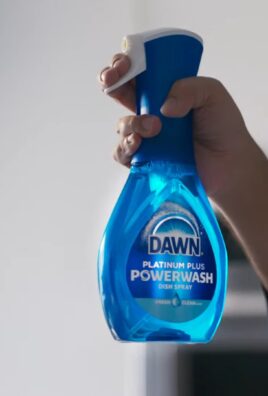
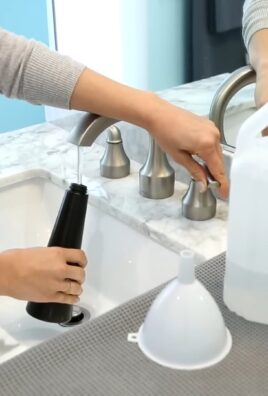
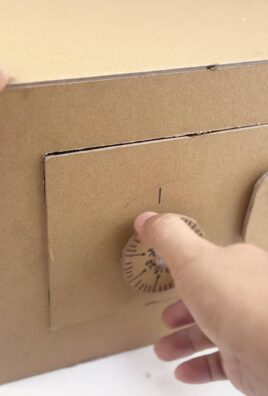
Leave a Comment